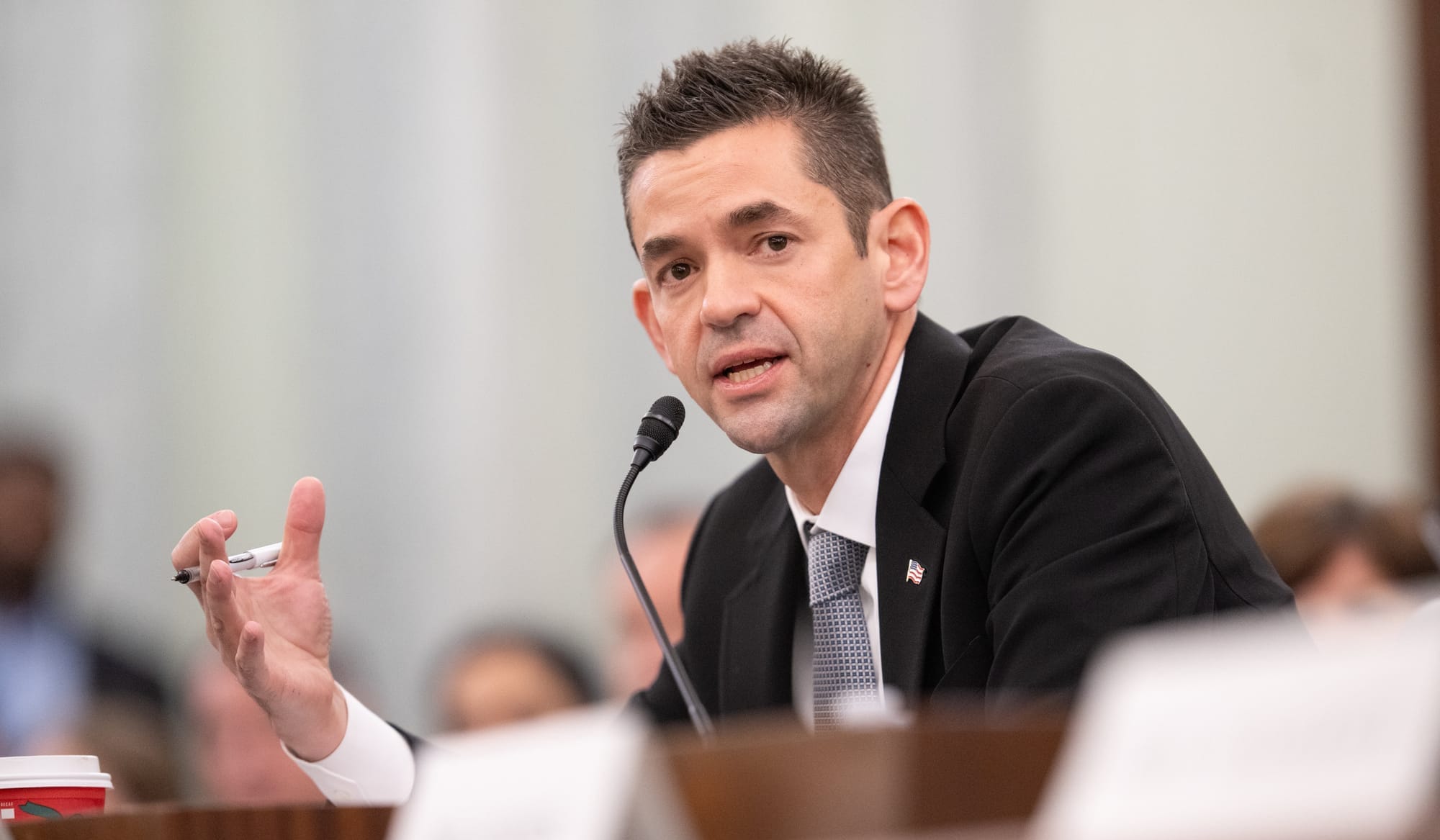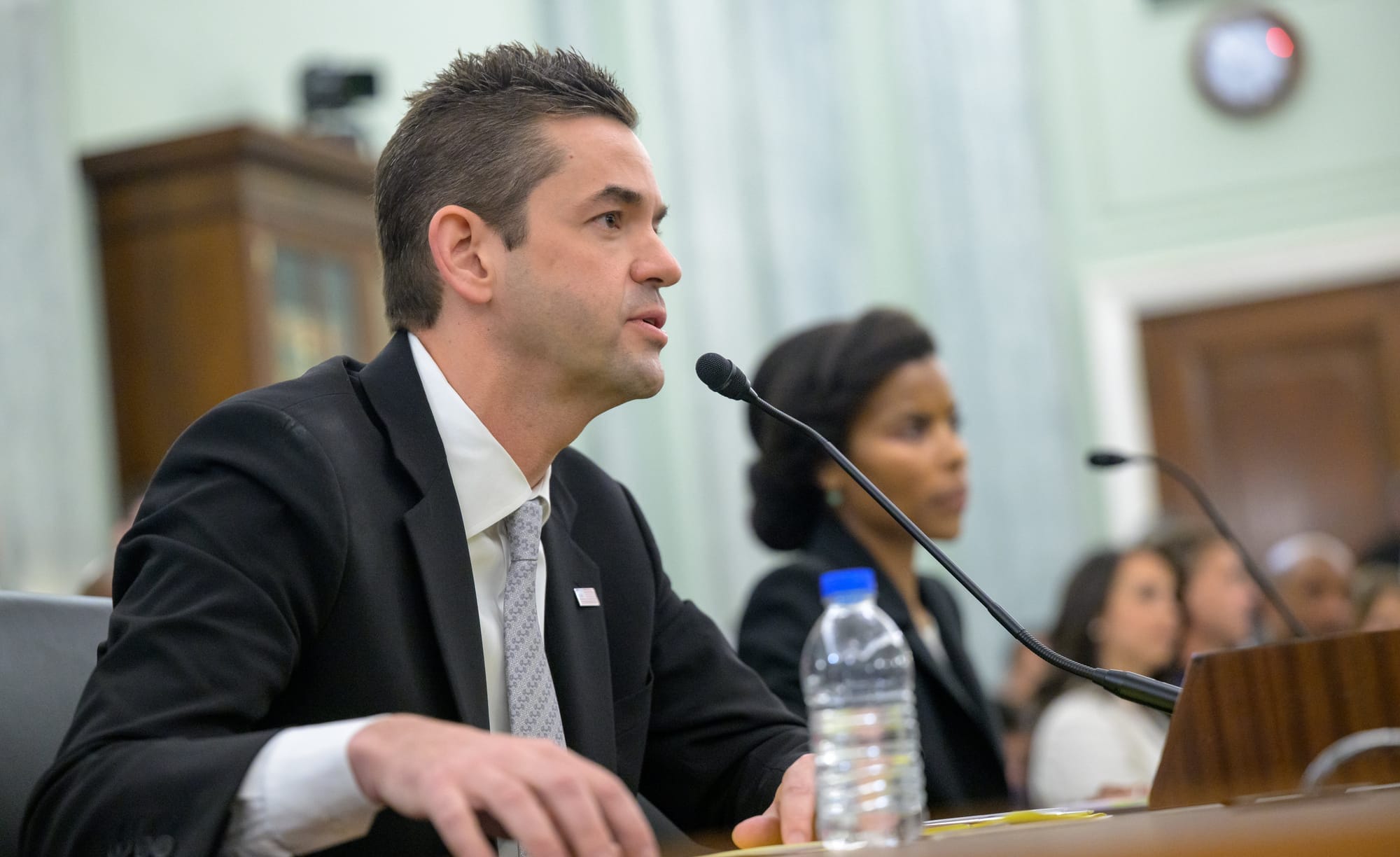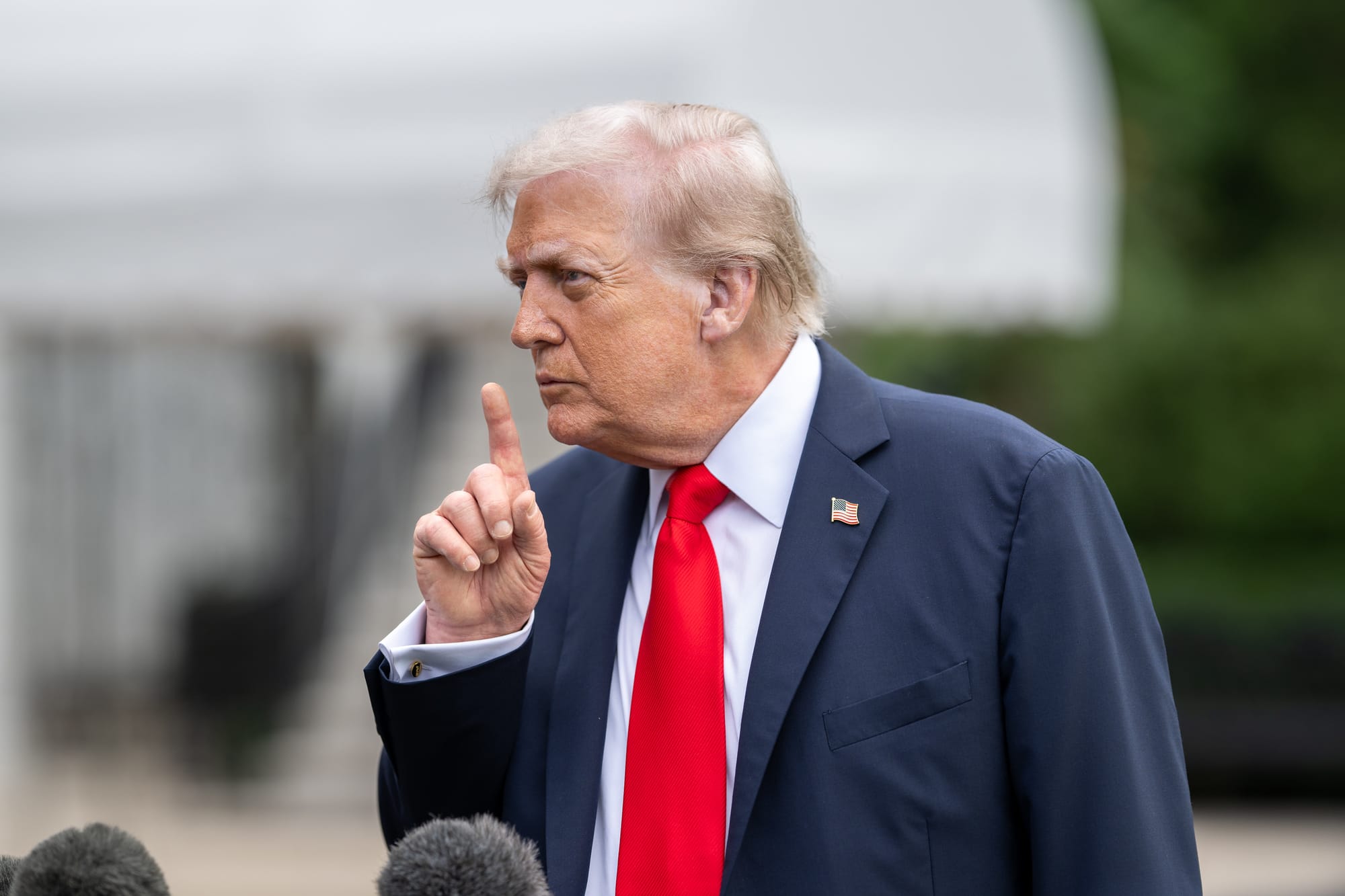Table of Contents
Since April 2, 2025, the U.S. economy has experienced dramatic swings following sweeping tariff announcements by President Donald Trump, who declared a universal 10% import tax alongside steep levies on Chinese and European goods. The abrupt policy shift triggered a historic two-day market crash, wiping out over 6.6 trillion United States Dollars in value and marking the largest loss in U.S. market history. Since then, continued uncertainty and the lingering economic impact of the tariffs have kept markets volatile.
Tariffs and Trump are inseparable, having been present since his first administration. MSNBC ran a story on April 5th highlighting that the Trump team got its plans to use tariffs via browsing book covers on Amazon. The one they went with was Death by China, written by Peter Navarro and Greg Autry.
Who are these guys?
Greg Autry is currently nominated to become chief financial officer of NASA, the second time Trump has tried to install him in the post having nominated him to the office back in 2020, when Trump and his supporters believed they hadn't lost that year's election.
Autry is a keen supporter of the "MAGA" movement, Elon Musk, and Trump, following them along uncritically. He is also ideologically uneducated, has no issue with supporting European fascists, and doesn't understand economics.
Professionally, Autry is a self-described "expert in the business of commercial space and a globally recognized leader in space policy" and a "serial technology entrepreneur". He is currently an Associate Provost at the University of Central Flordia and a visiting professor at Imperial College London.
Peter Navarro, also going by Ron Vara, is presently part of the Trump Administration, as well as part of the first one, as a Senior Counselor. Navarro, has and does, play a central role in shaping Trump’s trade wars and pushing for protectionist economic policies, often grounded in fringe economic theories dismissed by mainstream economists.
A loyal Trump ally, Navarro has been one of the most vocal proponents of false claims about the 2020 election, going so far as to publish a series of reports alleging widespread voter fraud, claims thoroughly debunked by courts, election officials, and bipartisan observers. He has not shown regret and has justified his acts as patriotic rather than seditious.
Navarro is known for his conspiratorial mindset and aggressive rhetoric, describing his opponents in terms reminiscent of Cold War propaganda. Despite his academic background, with a PhD in economics from Harvard, his work has been widely criticized for lacking rigor and cherry-picking data to fit predetermined narratives, as we will get into later.
Autry and Navarro
Self-admittedly by Autry on Navarro's blog, the two have maintained a relationship rooted in shared beliefs, mutual ambition, and an unwavering commitment to a combative, nationalist economic agenda. What began with Autry as a student in Navarro’s University of California, Irvine classroom evolved into a professional alliance that blurred the lines between mentorship, advocacy, and political partisanship.
“Watching my friend pilloried and smeared in the media compelled me to share my inside view of America’s newest political prisoner.”
From the outset, Autry casts Navarro not as a controversial figure under legal scrutiny, but as a wronged patriot. His narrative reframes defiance of a congressional subpoena as noble resistance and frames Navarro’s critics, including public health experts, economists, and elected officials, as enemies of truth.
Their joint work, including Death by China, positions globalization and the Communist Party of China as existential threats, often with alarmist overtones. Autry writes:
“CCP proxies, organized Chinese students, and Chinese money wield great power in American universities.”
It’s a claim that feeds into a wider conspiratorial worldview, one where academia, media, and multinational corporations are depicted as anti-American. The duo's rhetoric often reduces complex geopolitical and economic dynamics to a binary of patriots versus sellouts.
Even Navarro’s COVID-era policy role is presented through a hero’s lens. Autry credits him with life-saving foresight and logistical brilliance, while blaming "globalists" for failures in execution:
“Navarro was in the Situation Room convincing President Trump to ban flights from China ... Trump’s prudent decision to back Peter afforded America a bit more time.”
Yet Navarro’s critics argue he routinely sidelined expertise, sowed division, and overstepped his role. These concerns are absent from Autry’s narrative, which instead centers on loyalty and grievance.
Alongside this, it's not hard to find Autry praising Navarro on Twitter regularly. It is difficult to find praise going the other way however.
Some awful books
Autry and Navarro have jointly written two awful, barely-based-in-fact, books about China, titled Death by China and Red Moon Rising: How America Will Beat China on the Final Frontier. Thanks to a little ingenuity, Proxima Report has found copies of both and worked through both to pull apart their arguments and solutions.
'Death by China'
Published in 2011, Death by China opens not with scholarly analysis, but with a barrage of emotionally loaded language. Chapter titles like “Death by Chinese Junk,” “Death by Red Hacker,” and “When Mao Met Orwell” set the tone for a work that reads more like dystopian fiction than diplomatic or economic critique. It is less an investigation than an indictment, often painting the Chinese state and people in broad, undifferentiated strokes.
The authors fail to distinguish between legitimate critiques of specific policies and systemic hostility toward an entire nation. The line between the Communist Party, Chinese businesses, and the general population is repeatedly blurred, if not outright erased.
One of the book’s most glaring academic weaknesses is its use of anecdotal, decontextualized evidence. Tainted pet food, exploding electronics, and instances of labor abuse are marshaled not as part of a comparative analysis, but as proof of systemic rot. What the authors fail to disclose is that such issues are not unique to China; similar problems can be found in supply chains from many developing nations. And even in Western ones.
Moreover, the omission of China’s globally acknowledged achievements, such as lifting hundreds of millions out of poverty, technological innovation, or its evolving environmental reforms, reveals a strong case of confirmation bias. This is not a balanced inquiry, it is a narrative-driven, one-sided polemic.
The two author’s unwavering faith in U.S.-style capitalism and liberal democracy borders on dogma. Navarro and Autry treat these systems not as models open to critique, but as default moral baselines. China’s market socialism, called “state capitalism” throughout, is painted as a nefarious deviation rather than a sovereign model with its own logic and historical justification.
Perhaps the most disappointing aspect of Death by China is that it squanders its potential to raise valid concerns. Issues such as trade imbalances, intellectual property disputes, and labor conditions are real topics worthy of debate. However, by cloaking these issues in Cold War-style rhetoric and ignoring the role of U.S. multinational corporations in enabling offshoring and deregulation, the book reduces complex global dynamics to a crude morality play.
In some of the book's last pages, Autry and Navarro veer into speculative fiction, claiming China is preparing a space-based military assault, framing satellite programs like Beidou as precursors to orbital weaponry. Navarro and Autry invoke Chinese military theorists without context, interpreting hypothetical writings as direct intent.
Those pages ignore the reality that all major spacefaring nations, including the U.S., develop dual-use technologies. Omitted entirely is America’s space militarization, including its anti-satellite tests and the pushes for what would become the U.S. Space Force.
'Red Moon Rising'
Published in 2024, Red Moon Rising: How America Will Beat China on the Final Frontier presents itself as a sober strategic analysis of space policy but quickly reveals itself to be a continuation of the same ideological framework found the duo's earlier anti-China book. While its tone is less incendiary than that of Death by China, its underlying assumptions remain rooted in a worldview that sees China not as a peer competitor or collaborator, but as an existential adversary to American supremacy.
The book opens with quotations from Sun Tzu, but this invocation is largely aesthetic. Classical Chinese strategy is selectively quoted to serve a narrative that promotes preemption, dominance, and the necessity of space-based militarization. The deeper philosophical underpinnings of Sun Tzu’s writing, emphasizing caution, flexibility, and the avoidance of unnecessary conflict, are noticeably absent.
Red Moon Rising’s title itself betrays its combative posture. The “final frontier” is not portrayed as a realm for shared human advancement, but as a new theater for great-power competition, where America must "beat" China. The premise rests on the assumption that space is inherently a domain of rivalry, with the United States as its rightful steward. In this framing, China’s growing presence in orbit is treated less as a sovereign nation's scientific advancement and more as an encroachment. Programs like the Beidou network, the Tiangong Space Station, and China's lunar missions are recast as provocations or precursors to military escalation, rather than evidence of a parallel model of development rooted in peaceful use and global partnerships.
What is most striking is the book’s near-total omission of America’s own aggressive posture in space. The establishment of the U.S. Space Force, past anti-satellite weapons tests, and the consolidation of military-civilian dual-use efforts are all omitted or ignored. Instead, the narrative focuses on speculative interpretations of China’s intentions, often through decontextualized readings of military documents or policy statements. This mirrors the same rhetorical technique used in Death by China, where isolated examples are elevated into existential threats, while equivalent or more expansive actions by the United States are either minimized or cast as defensive necessities.
Another area where the book betrays its geopolitical bias is in its treatment of space regulation. It presents the Artemis Accords as the logical framework for international cooperation, despite their explicit design to exclude China and consolidate U.S.-aligned partnerships. There is no serious engagement with the global debate over space law, nor any recognition of China’s longstanding support for the Outer Space Treaty and calls for banning space weapons. In this respect, Red Moon Rising functions less as an analysis of space policy than as an extension of American exceptionalism, extending out into orbit.
Rather than considering the possibility of peaceful coexistence or joint stewardship of space, the book treats competition as inevitable and consensus as naive. This not only reflects a misreading of China’s actual space doctrine but also reveals a deeper anxiety within the duo's American-centric strategic thoughts. As with Death by China, the ultimate concern is not that China seeks to dominate space, but that it might succeed in doing so without mimicking the West’s model of power projection or exploitation.
Why should NASA be worried?
According to NASA, the Chief Financial Officer is responsible for managing the agency’s financial planning and ensuring that public funds are used effectively and responsibly. This role includes leading the development of NASA’s yearly budget requests, overseeing financial reporting, and advising the Administrator, soon-to-be Jared Isaacman, on all financial matters. The Chief Financial Officer helps ensure that NASA remains financially sound as it carries out its missions.
However, Autry's financial management skills are questionable. His most recent position is, he claims, as a board member and co-founder of a carbon fiber recycling company. Other than that it's almost a decade ago in 2016 as part of the first Trump transition team at NASA, then a series of lecturing gigs.
It is clear that through his books, Autry seeks to position himself as a major thought leader, with the thought based on a barely fact-based reality.
The job as NASA's head of finances is to push for, and sometimes beg, for increased funding. It is not to politically "kiss the ring". Autry is an uncritical believer in the imagined "MAGA" worldview, not someone who will do what is best for the reality-based NASA.
If sent to NASA through a U.S. Senate vote, Autry will likely worsen the looming situation across the agency, choosing to please President Trump with whatever he asks.







